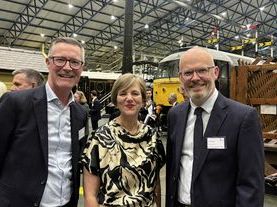The continued disruption in the supply of vehicles to the fleet sector is restricting business growth, according to recent BVRLA insights. In the latest Business Impact Survey, the vast majority of BVRLA members (94%) listed supply issues as their primary concern, while 71% say lack of vehicle availability will negatively impact future performance.

Conducted at a time when the automotive supply chain is feeling the combined effects of the semiconductor shortage and war in Ukraine, the latest survey shows that vehicle availability is as bad as it has been since the pandemic, with lead times of up to a year now the norm for all vehicle types.
The knock-on impacts of extended lead times include vehicles being held on fleet longer, pushing up maintenance costs, as well as customer expectations not being met as greater compromises are required to keep them mobile.
Speaking at the BVRLA’s latest Industry Outlook webinar, where members were given an update on the supply crisis, Dylan Setterfield, Head of Forecast Strategy at cap hpi, said: “There has been a significant distortion in the new car market in recent months. Manufacturers have clearly been prioritising retail over all forms of fleet, and if you look at Q4 last year, retail was only down 1.3%, but over the same period fleet registrations were down 41.3%.”
While the uncertain situation is a widespread concern, the sector does present a variety of solutions that are keeping drivers on the road. Flexible rental options – particularly on vans – have seen significant uplifts in demand, with salary sacrifice, Business Contract Hire and used car leasing also growing in popularity as driver perceptions on mobility evolve.
See the BVRLA press release issued 5 April: BVRLA Supply shortages could cause market to stall, warn BVRLA Members.



